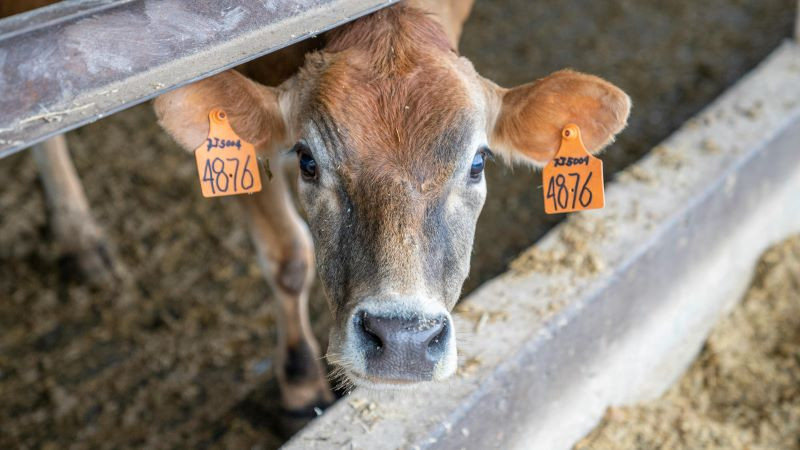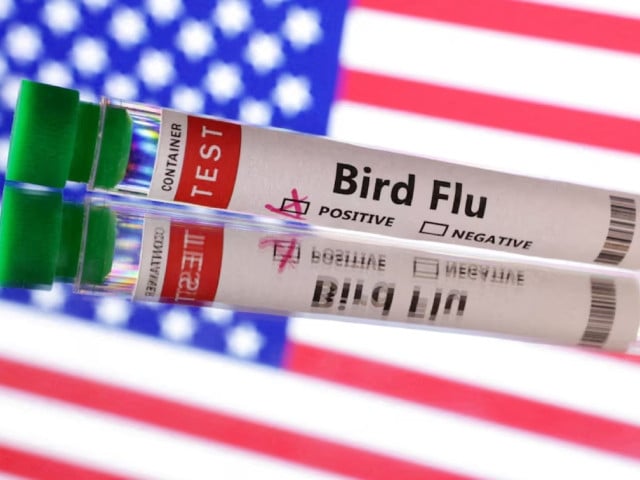
The US Department of Agriculture (USDA) has announced a new federal mandate requiring bulk milk testing across the country to monitor bird flu in dairy herds. The move, which takes effect on December 16, aims to enhance surveillance for the H5N1 virus, which has been affecting dairy cattle since it was first detected in March.
Under the new order, milk samples will be collected from dairy farms and shared with federal authorities for testing. The USDA said the initiative will provide a comprehensive monitoring system, helping to track the virus and control its spread.
USDA officials have assured the public that pasteurized milk remains safe, as the heating process kills harmful pathogens, but have warned against consuming raw milk, which could transmit the virus.
Federal data reveals that over 700 dairy herds in 15 states have tested positive for bird flu, with the highest concentration of cases—more than 500 herds—occurring in California, the nation's largest dairy-producing state.
Agriculture Secretary Tom Vilsack emphasised the importance of the testing strategy, stating, “This new milk testing strategy will build on those steps to date and will provide a roadmap for states to protect the health of their dairy herds." He added that the initiative would instill greater confidence among farmers and farmworkers regarding the safety of their animals and help control the virus's spread.
The bulk milk testing programme is also vital for tracking the virus's path, according to Dr. K. Fred Gingrich II, executive director of the American Association of Bovine Practitioners. He told *USA TODAY*, “Testing allows officials to better track the path of the virus.”
In July, Colorado implemented similar bulk-milk testing in response to the bird flu, which has since been largely contained, with only one infected herd remaining. Since April, the USDA has required lactating dairy cows to be tested for bird flu before being moved across state lines, with all positive results reported by private laboratories and state veterinarians.
This year, the Centers for Disease Control and Prevention (CDC) has reported 58 human cases of bird flu in the US, including 35 dairy workers and 21 poultry workers. All affected individuals experienced mild symptoms, with two cases, including one involving a child in California, having unknown sources of transmission. No human-to-human transmission has been reported.
The USDA’s new National Milk Testing Strategy divides states into five stages based on virus prevalence. The strategy will first involve testing milk silos at dairy processing facilities (Stage 1), followed by bulk tank sampling of potentially infected herds (Stage 2). In Stage 3, rapid responses will be made to infected cattle, including movement controls and contact tracing. States will continue bulk sampling in Stage 4 to ensure the virus does not return, with periodic sampling to follow if the disease is eradicated.
California, Colorado, Michigan, Mississippi, Oregon, and Pennsylvania will be the first states included in the new testing strategy. The USDA plans to expand the programme nationwide as more states move through the stages of the strategy.




1736599343-0/fizza-(8)1736599343-0-165x106.webp)



1736605969-0/Copy-of-Untitled-(7)1736605969-0-270x192.webp)




1731228569-0/Express-Tribune--(6)1731228569-0-270x192.webp)

1736508423-0/Express-Tribune---News-Desk-(9)1736508423-0-270x192.webp)

1736495887-0/sidra--(63)1736495887-0-270x192.webp)









COMMENTS
Comments are moderated and generally will be posted if they are on-topic and not abusive.
For more information, please see our Comments FAQ